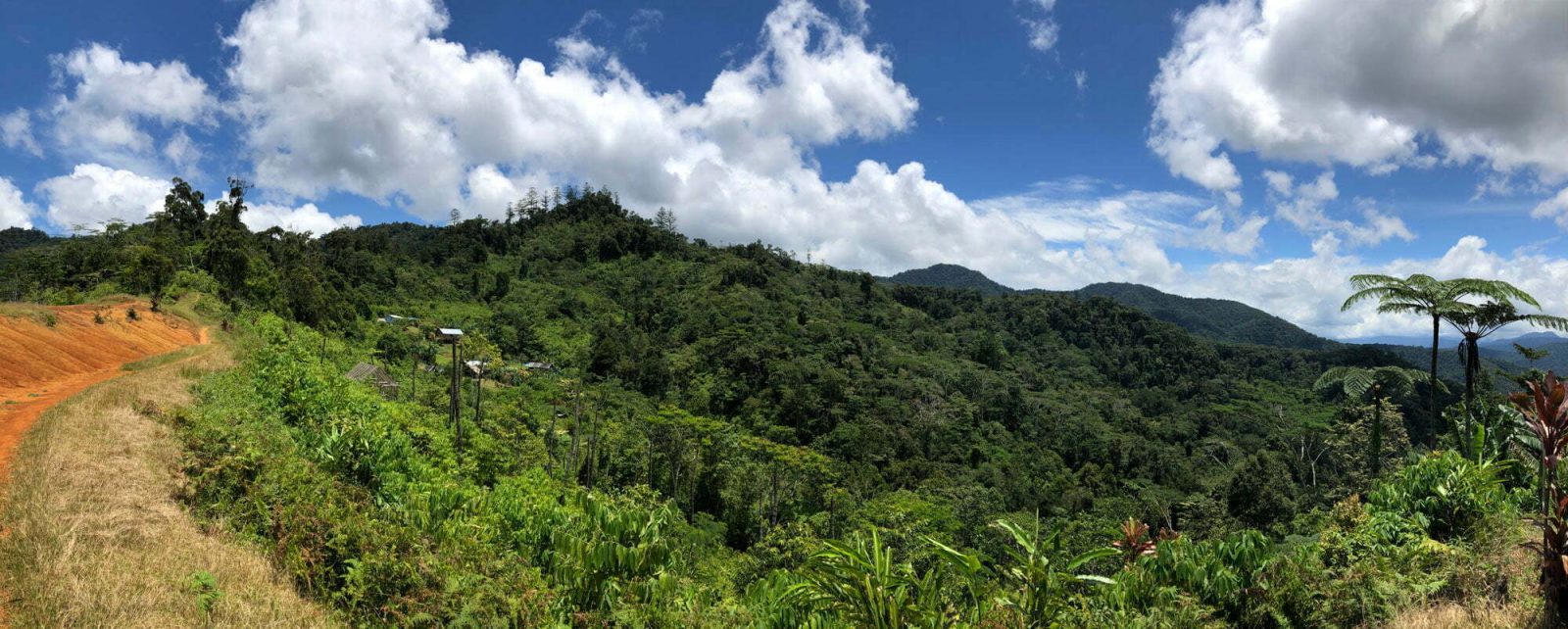2024 ANZAC DAY KOKODA TREKS
12 Days 4450 ex Port Moresby

Accommodation
8 Nights Camping
3 Nights Hotel

Transportation
Mostly on foot
Transfers to and from the trailhead, return flight to Port Moresby

Included Meals
11 Breakfasts
9 Lunches
9 Dinners

Trip Grade
Category 3
High Heart Rate Holiday
Charity
Better Schools in PNG
The weak flapping of an Australian flag. A quiet murmur of shuffling feet. An occasional cough, or the buzz of a fly.
These, the only sounds that break the pre-dawn silence within Bomana War Cemetery.
Suddenly, a bugle, like a shot from a rifle, breaks that silence!
Shivers go down your spine.
This is ANZAC Day. This is the dawn service. This is Kokoda.
After nine days walking the infamous Kokoda Track, there’s a new appreciation for the almost 4,000 Commonwealth servicemen and women whose final resting places lay all around you.
Gone, but by no means forgotten, this is your chance to walk in their footsteps, honour their memory and their sacrifice.
“They shall grow not old, as we that are left grow old;
Age shall not weary them, nor the years condemn.
At the going down of the sun and in the morning
We will remember them.”
The Ode from For the Fallen, Laurence Binyon

The first Australian casualties of World War One were actually sustained in German New Guinea (now Papua New Guinea) in September of 1914
2024 marks the 82nd Anniversary of the Kokoda Track campaign, and whilst the number of surviving servicemen continues to dwindle with each passing year, the legend of their feats continues to grow.
It was in Papua New Guinea that the mighty empire of Japan suffered its first defeat, and its aura of invincibility was finally shattered.
Walk the Kokoda Track and understand the conditions they endured, appreciate the sacrifices made by both sides all along the trail, and be part of something very special indeed.
“The Kokoda Trail is as ingrained in Australia’s story as Gallipoli. From July 1942 to early 1943, Australian troops in the Owen Stanley Range and on the beaches of northern Papua saw some of the most desperate and vicious fighting encountered in the Second World War.”
Australian War Memorial

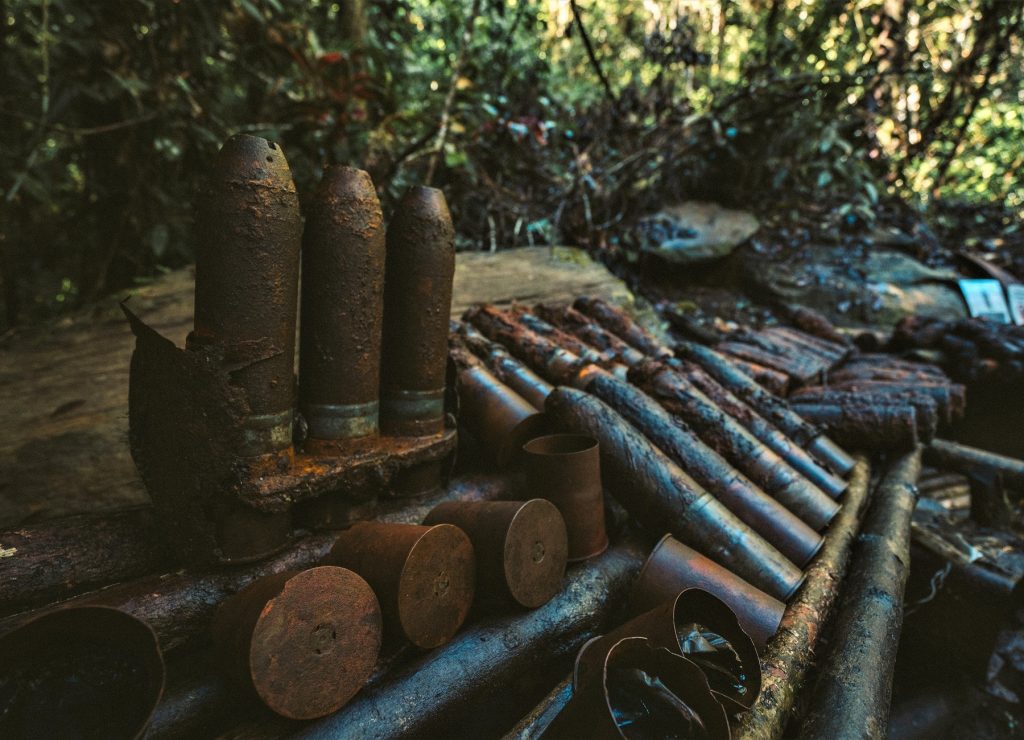
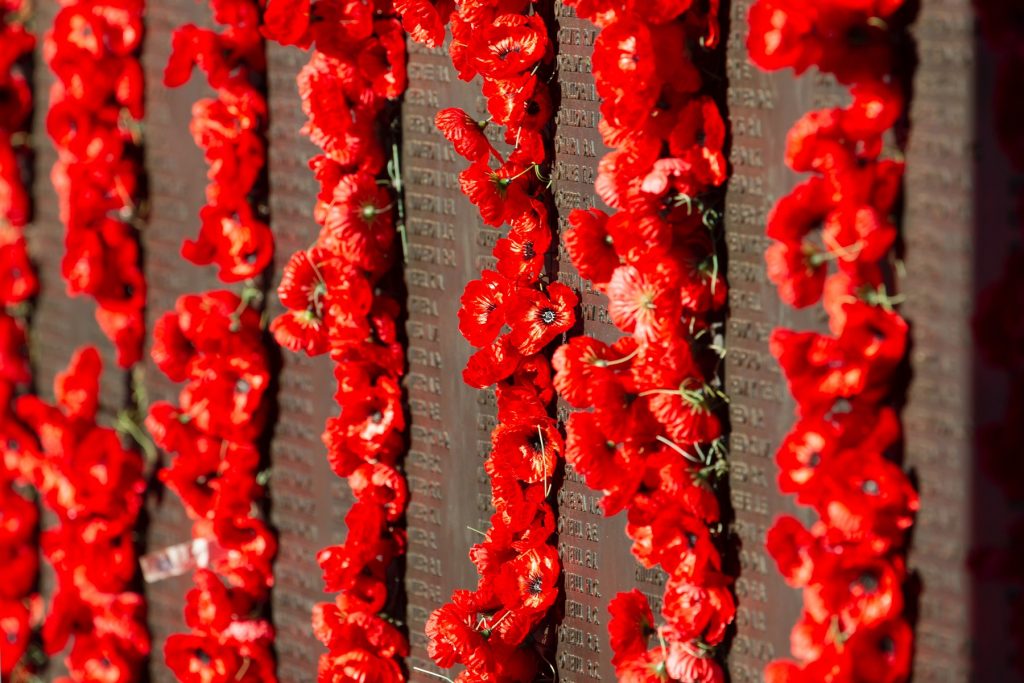
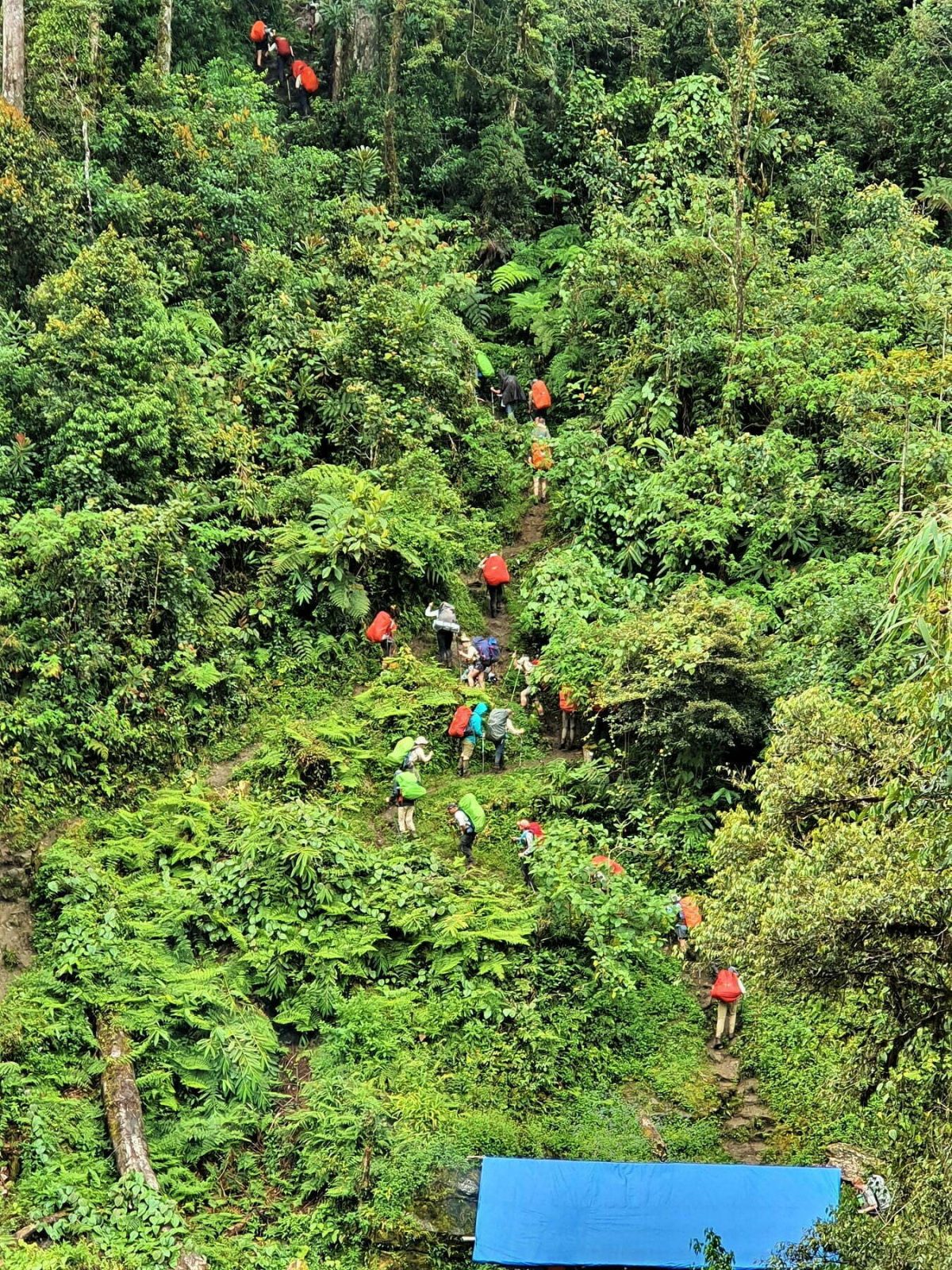
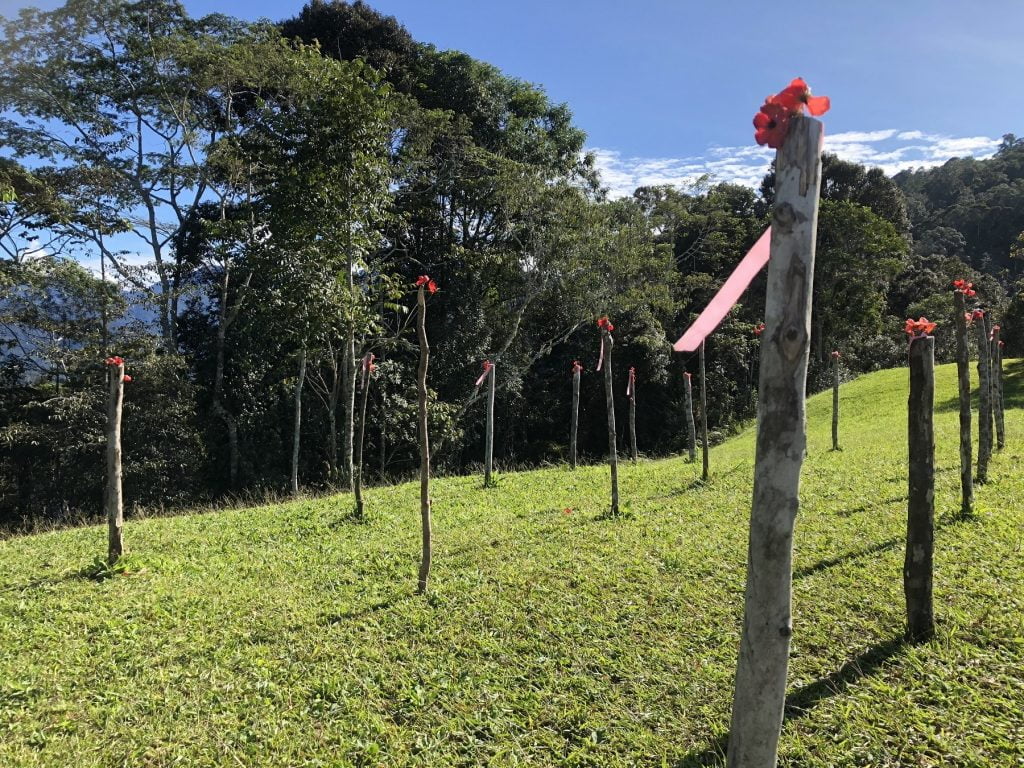
The Journey
Arrive Port Moresby and transfer to hotel.
Pre-expedition briefing by your guide. Get to know your fellow adventurers!
(3-4Hours) We depart Port Moresby at 7 am for Popondetta (30 minutes). We will then ride the “Chiropractic Express” along the same road the Japanese Imperial Force used to reach Kokoda Village, crossing the wide Kumusi River (where Japanese Major General Horii famously drowned). We’ll visit the local war museum and walk on the cigar-shaped Kokoda battlefield.
We’ll be introduced to our expert guide and local team, who will be our support for the trek to come. They will set up camp, carry our food, tents and safety equipment and ensure we have a safe and enjoyable trek.
We will then head off towards Deniki, through plantations and via the beautiful Hoi village. The going is relatively easy except for a steep 45 minute trek up to our destination. We will set up camp, have lunch and a delicious dinner before bed. (B,L,D)
(6-7 Hours) After breakfast, we break camp for Alola via the Isurava Battlefield memorial.
The Isurava memorial was opened in August 2002 to commemorate the 60th anniversary of the ferocious four day Battle fought here back in 1942.
We will lunch there and then continue hiking – descending and ascending numerous hills to finally arrive at Alola. From here we can see across the valley towards Abuari Village. (B,L,D)
(7 hours) Hike from Alola via Eora Creek to Templeton’s Crossing 1 (Dump 1), at the base of Mt Belamy.
This is a long day but extremely interesting with both historical and natural points of interest. (B,L,D)
(8.5 hours) Trek from Templeton’s 1 to our home village, Kagi.
Today will see us ascend Mt Bellamy, the highest point along the Kokoda Track (2190m).
The Kokoda Gap often provides wonderful views (on clear days).
We will detour off the track to Myola 1, before our descent into Kagi where we’ll meet the locals.
A well deserved meal awaits.
Overnight in a village guesthouse or tents. (B,L,D)
Today is the local Sabbath (Seventh Day Adventists). There’s an invitation to join them (if you wish) in a church service to hear them sing, and observe how they pray. Afterwards we will take a leisurely stroll to a local natural wonder, relaxing and letting our muscles rest before the next day’s trek. (B,L,D)
(8 Hours) Today we will hike from Kagi to the village of Menari. Across the morning we’ll climb Brigade Hill, before a long, steep descent into Menari.
This will weary your feet and legs, and most sleep very well indeed. Overnight in Menari. (B,L,D)
(5 Hours) Hike from Menari to Naoro village.
After climbing a steep saddle you will descend and pass through a swamp with a number of river crossings to Nauro village.
When safe, there’s a good chance to river surf down the Brown River! (B,L,D)
(8 Hours) Hike from Nauro to Wa-ule Creek.
Climbing through open grasslands you will mount the Maguli Range and take a long steep descent to Ofi Creek and Wa-ule Creek campsite. (B,L,D)
(4-5 Hours). Hike from Wa-ule Creek to Ower’s Corner.
There are a number of river crossings and a long steep climb up Imita Ridge.
The descent on the other side of the ridge is known as The Golden Stairs which leads down to Goldie River. After wading through the river the Kokoda Track concludes with a final steep ascent to Owers’ Corner.
Arriving in the early afternoon, we’ll be met by vehicles with a picnic lunch and cold drinks that you will share with your guides and local team, before we transfer back to Port Moresby.
We will spend the night dining with our guides and other friends we have made on the Kokoda Track. (B,L,D)
It’s an early start as we head off to Bomana War cemetery for the Dawn Service. Back to the hotel for some breakfast and for those who wish, they can go to the Royal Papuan Yacht Club for lunch and the traditional AFL ANZAC Day match at the MCG.
Our adventure is over. Transfer back to the airport and return home, or journey onward!
Includes
- Trained Australian and Local Guides for the entire expedition (who carry all group equipment, food & set up camp)
- Electrolyte supplements such as Hydralyte
- All domestic flights within PNG (as per itinerary)
- The support of a trained medic and our River rescue team
- Shower tent to wash with soap and protect the environment. Hot showers are available for a small fee.
- 10 breakfasts, 9 lunches, 9 dinners (some dietary requirements such as vegetarian, vegan & gluten intolerant can be accommodated)
- All transfers as per itinerary
- A visit to Bomana War Cemetery
- All accommodation during the scheduled itinerary (2 nights hotel accommodation in Port Moresby, and tents inclusive of sleeping mats for the remainder of the trip)
- Kokoda Track Permit
- 1 to 1 General Guide-Client ratio
- A rubbish Guide that takes all our (and some other operators) rubbish from the Track
- Farewell dinner on the final night
- Snack Pack for each expedition day to get you between meals
- No Roads Expedition T-shirt
- Urine and health chart
- Access to your Australian Guide for advice prior to (and on) the expedition
- Access to FREE weekend training walks before and after the expedition
Excludes
- International Flights
- Travel Insurance
- Personal spending money
- Tips for General Guides
- Any meals not listed as included
Your Guides and Safety
An excellent guide can make the difference between a trip of a lifetime and just an ordinary trip. Our handpicked professionals come from a range of backgrounds. Each has extensive outdoor and hiking experience and a passion for the beautiful place that is Papua New Guinea. The guide will ensure that your trip is truly inspiring, a huge amount of fun, and safe. All guides are trained in Safety First Aid and are connected to our Port Moresby and Melbourne offices by satellite phone.
Accommodation
“No tents tonight, as we all opted to rest our sodden bodies and damp clothes inside a rickety hut.
Seriously, the floor flexed as we tiptoed over it, and it wasn’t only the two oddly shaped windows allowing in some of the dull light but also the wider cracks within the floor.”
We’ll make you as comfortable as we can, but outside of Port Moresby, there’s no escaping the fact, that we’re inhabiting the remote. Provided for you, at every campsite (should you want it) are a single-person tent and a sleeping mat. You could get by with that alone beneath your weary legs, but we’d recommend bringing an inflatable mattress, and a sleeping bag as well.
At some sites, you’ll have the option of a guesthouse should you want a bit more space to stretch. Think 3 or 4 wooden walls, and a thatch roof and floor, and you’ve got a reasonable picture.
Certainly a popular place for drying boots and socks, they’ll also on occasion sleep a trekker or two. Just make sure to bring a mosquito net, just in case.
It might sound rough, but we assure you, some nights, will come close to the best you’ve ever slept!
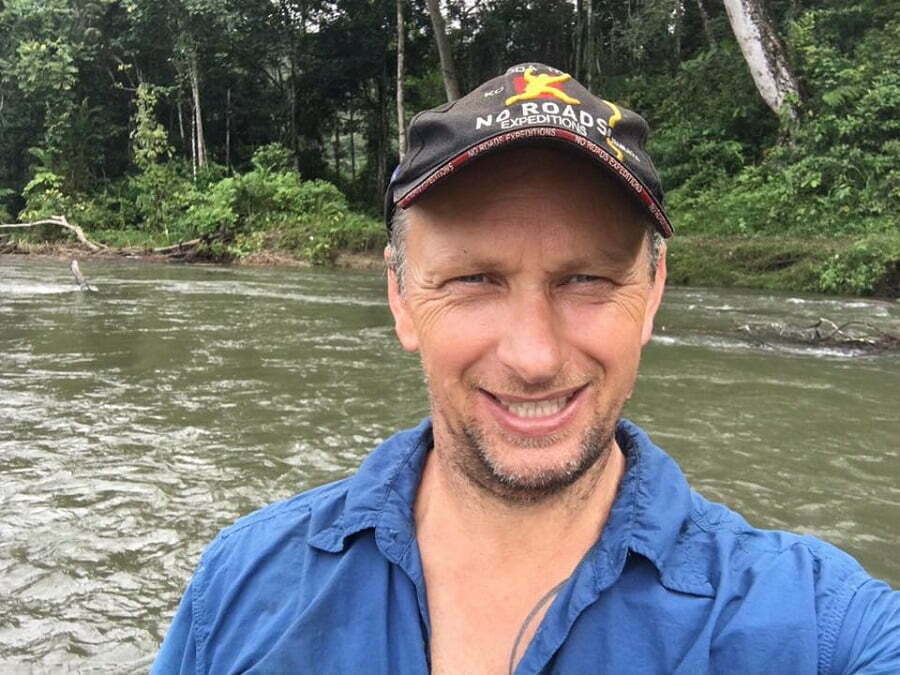
When you walk with No Roads, you are honouring their sacrifice, and ensuring that the soldier’s legacy lives on. Kokoda will challenge you, demanding everything that you have, and more. But it will also change you in so many ways. You will truly understand the meaning of the words ‘courage’, ‘endurance’, ‘mateship’ and ‘sacrifice’
Andrew Flanagan,
Expedition Guide.
As we departed Deniki, the relatively open jungle (at least at this point) was carpeted in lush green growth.
This was the Choko vine, and little did we know, its freshly plucked fruit would form part of our dinner, that very night!
Food in PNG
“There I was, socks screwed up into balls, massaging wrinkles out of damp, tired feet when I caught a familiar smell. Was I back at the movies?! Minutes later, a large bowl of steaming salted popcorn was plonked on the table right in front of me, almost like a dream!”
We want to maximise the economic benefits from your visit to the local people everywhere we explore. The purchase of fruits & vegetables, allows fresh foods for our meals, and income for them. This provides incentives for villagers to offer a good standard of service to trekking parties as well as a vital source of income to pay for medicine, education, and transportation.
One of the biggest differences between us and other operators is our food. We do not get you to carry the food and we do not supply baked beans and 2 minute noodles for every meal. We cook up curries, vegetarian pastas, damper, prawn crackers, fried rice and the list goes on. Our Master Chefs are specifically trained in food handling to ensure you have not only a delicious meal full of nutrition, but one that is safe to eat. You may even have the opportunity to help the Chef prepare the meal, giving you a chance to engage our local team in conversation and build a bond otherwise not obtained.
